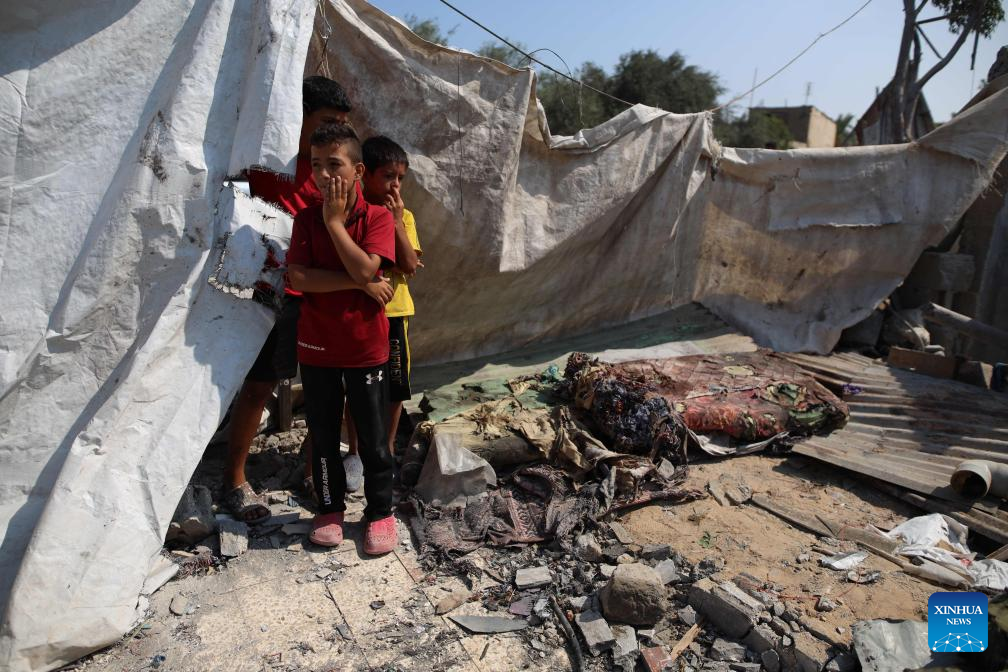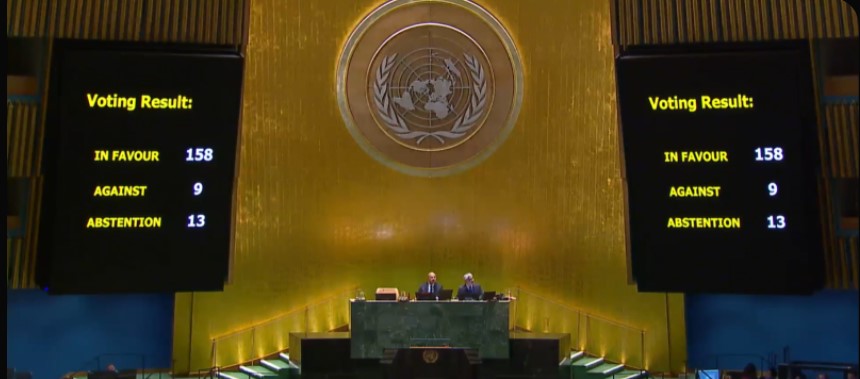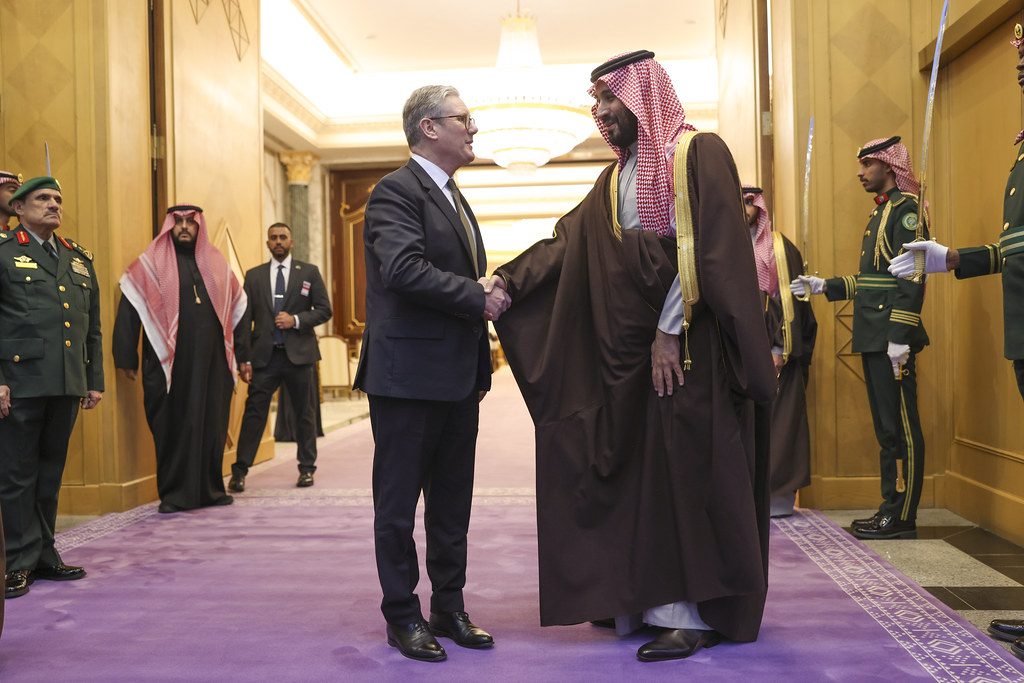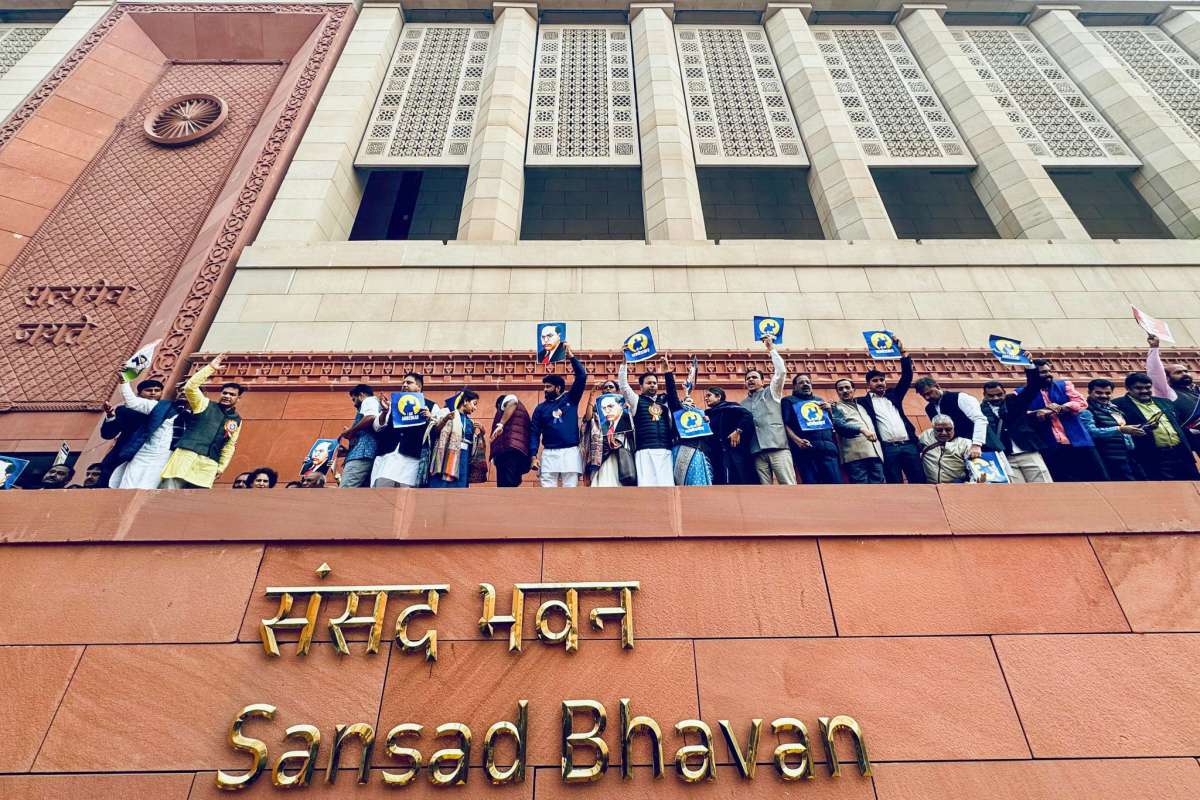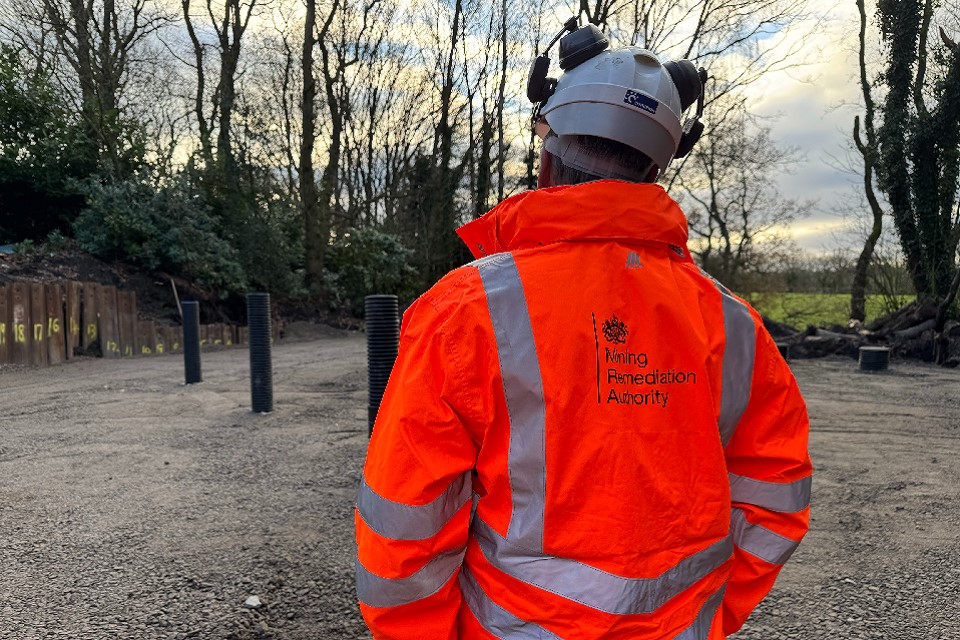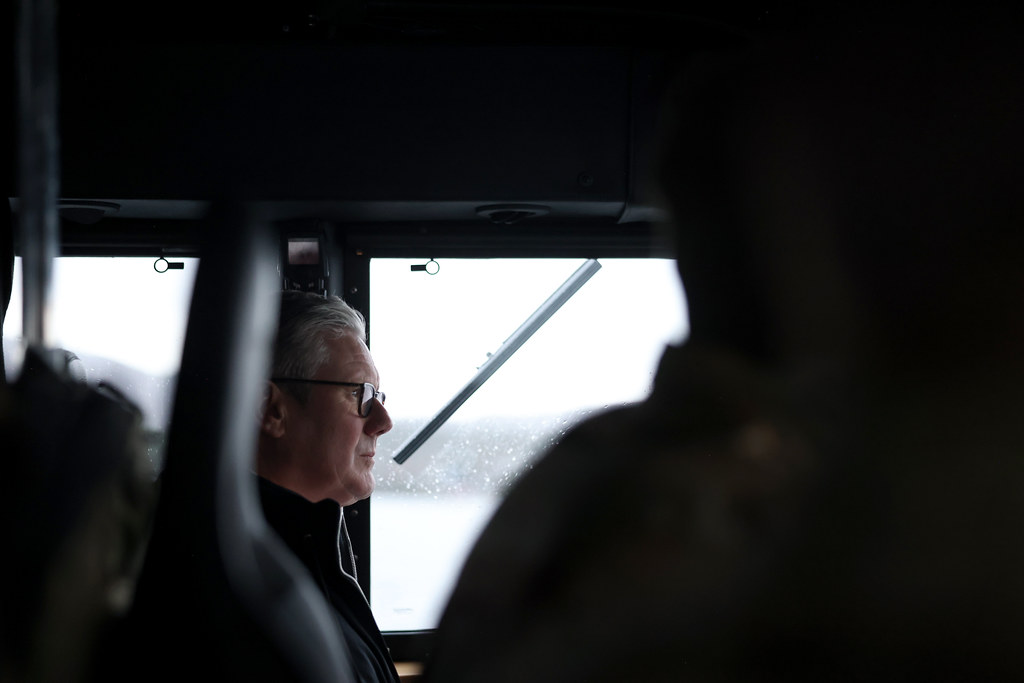PM tells Netanyahu of a clear and urgent need for a ceasefire, return of hostages and an immediate increase in the volume of humanitarian aid…reports Asian Lite News
The Prime Minister has emphasised the need for a ceasefire and a two-state solution in calls with Israeli and Palestinian leaders, as Israel has shown no inclination to stop its devastating war that has killed more than 38,000 people.
Keir Starmer told Israeli Prime Minister Benjamin Netanyahu of a “clear and urgent need for a ceasefire, the return of hostages and an immediate increase in the volume of humanitarian aid reaching civilians”.
As the opposition leader, Starmer had been accused of not calling for a ceasefire, taking the same line as Conservative Prime Minister Rishi Sunak. He called for a ceasefire in February after intense public pressure months after opposing a ceasefire resolution in the UK Parliament. He was also accused of denying tickets to some pro-Palestinian members of the Labour Party, including former party chief Jeremy Corbyn.
At least five pro-Palestinian candidates, including Corbyn, won the elections as independents.
Starmer was widely criticised for saying Israel “has the right” to cut water and electricity supplies to Gaza on an LBC podcast last October. A Labour Party spokesperson denied Starmer justified water and power blockade, saying his comment was in response to a question on Israel’s right to defend itself.
More than 38,000 Palestinians have been killed, mostly children and women, in the Israeli military offensive launched in the wake of October 7 attacks by Palestinian groups on Israel. More than 87,000 people have been injured and thousands are missing.
According to a statement by the new British government, the prime minister added that “it was also important to ensure the long-term conditions for a two-state solution were in place, including ensuring the Palestinian Authority had the financial means to operate effectively”.
Starmer assured Netanyahu that the UK wishes to continue its “vital cooperation to deter malign threats” with Israel. Netanyahu’s office did not put out a statement after the phone call on Sunday.
Starmer also spoke with Palestinian President Mahmoud Abbas to reiterate the same priorities.
“Discussing the importance of reform, and ensuring international legitimacy for Palestine, the prime minister said that his longstanding policy on recognition to contribute to a peace process had not changed, and it was the undeniable right of Palestinians,” a Downing Street spokesperson told reporters.
According to the Wafa news agency, Abbas emphasised the importance of the UK recognising the State of Palestine.
Palestine has been recognised as a sovereign country by more than 140 countries, with Ireland, Spain and Norway becoming the latest European nations to do so in late May.
The Israeli military continues to significantly restrict the flow of international humanitarian aid going into the besieged enclave, leading to mass malnutrition, especially among children, according to the United Nations and global aid organisations.
During the phone call with Netanyahu, Starmer also discussed the intensifying border fighting between Israel and Lebanon’s Hezbollah that still threatens to expand into all-out war.
He said, “The situation on [the] northern border of Israel was very concerning, and it was crucial all parties acted with caution.”
Israel pushes deeper into Gaza
Meanwhile, Israeli forces advanced deeper into the Gaza Strip’s largest city in pursuit of militants who had regrouped there, sending thousands of Palestinians fleeing on Monday from an area ravaged in the early weeks of the nine-month-long war.
Hamas said it had shown flexibility in indirect talks over a ceasefire and hostage release and accused Israeli Prime Minister Benjamin Netanyahu of setting “obstacles,” including the latest escalation. The incursion into Gaza City came after Israel and Hamas appeared to draw closer to bridging gaps in negotiations.
Israeli troops were again battling militants in areas that the army said had been largely cleared months ago in northern Gaza. The military ordered evacuations ahead of the raids, but Palestinians said nowhere feels safe. Most of the population of 2.3 million has been displaced, often multiple times. Hundreds of thousands are packed into sweltering tent camps.
Israel ordered the evacuation of northern Gaza in the first weeks of the war and has prevented most people from returning. But hundreds of thousands of Palestinians remain, living in shelters or the shells of homes.
“We fled in the darkness amid heavy strikes,” said Sayeda Abdel-Baki, a mother of three who had sheltered with relatives in the Daraj neighborhood. “This is my fifth displacement.”
Residents reported artillery and tank fire, as well as airstrikes. Gaza’s Health Ministry, with limited access to the north, did not immediately report casualties.
Israel issued additional evacuation orders for areas in other neighborhoods of central Gaza City. The military said it had intelligence showing that militants from Hamas and the smaller Islamic Jihad group were in the area, and called on residents to head south to the city of Deir Al-Balah.
Israel accuses Hamas and other militants of hiding among civilians. In Shijaiyah, a Gaza City neighborhood that has seen weeks of fighting, the military said troops raided and destroyed schools and a clinic that had been converted into militant compounds.
ALSO READ-Starmer says UK can improve on ‘botched’ Brexit deal
